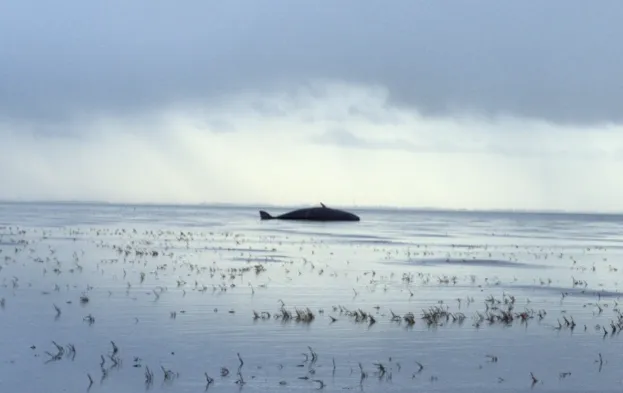In early 2016, 30 sperm whales foraged in Norwegian waters before entering the southern North Sea and ending up stranded across five European countries.
Over a period of six weeks, 16 animals stranded in Germany, six in England, six in The Netherlands, one in Denmark and one in France.
An investigation by international scientists and experts has now published its results on these strandings, concluding that they were probably due to a combination of several factors.
“We looked at the health status and nutritional condition of each animals [27 of the whales were examined],” says Utrecht University’s Lonneke Ijsseldijk.
“Several infections were found, including parasites and a new herpes virus, but all were deemed to be incidental findings in this large-scale stranding event. Being able to rule disease as the primary cause of the event makes other causes more likely.”
Other factors were also investigated, but there was no evidence of manmade trauma (such as entanglement or ship strike), chemical pollution, harmful algal blooms, or changes in sea surface temperature causing the strandings.
“In nine examined whales, marine debris (plastic) was also found, but had not caused obstructions of the gastrointestinal tract or starvation and were deemed to be of secondary importance,” continues Ijsseldijk.

All 30 whales were young subadult males aged between 10 and 16 years old, and the reason why they entered the North Sea is unclear.
Sperm whales usually inhabit deep water, and the North Sea becomes progressively shallower towards the south. It is a global hotspot for sperm whale strandings.
“Once the whales entered the southern North Sea, they were unfortunately really up against it.,” says Rob Deaville, project manager of the Zoological Society of London’s Cetacean Strandings Investigation Programme.
“As highly specialised deep-water feeders, their biosonar wouldn’t have been able to function effectively in this very shallow region, meaning that unless they found their way back out again, their stranding – in what is effectively an ‘acoustic dead zone’ for deep diving species – would have been inevitable.”

